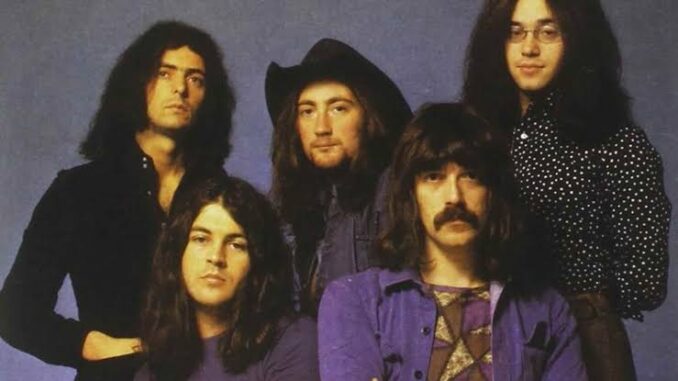
**Smoke On The Water at 50: The Story of Deep Purple Mk II and the Most Famous Guitar Riff of All Time**
In 1973, Deep Purple released “Smoke on the Water,” a track destined to become one of rock music’s most iconic anthems. Now, 50 years later, its unmistakable four-note riff remains instantly recognizable—a rite of passage for budding guitarists and a pillar of rock history.
The story behind the song is as legendary as the riff itself. In December 1971, Deep Purple’s Mk II lineup—Ritchie Blackmore (guitar), Ian Gillan (vocals), Roger Glover (bass), Jon Lord (keyboards), and Ian Paice (drums)—was in Montreux, Switzerland, to record their next album using the mobile studio owned by the Rolling Stones. They planned to record at the Montreux Casino, but fate had other plans.
During a Frank Zappa concert the night before their session, an audience member fired a flare gun into the ceiling. The venue caught fire and burned to the ground. The members of Deep Purple watched the blaze from across Lake Geneva, watching the smoke drift over the water. The incident not only derailed their recording plans—it inspired their most famous song.
Forced to relocate, they recorded *Machine Head* in the nearby Grand Hotel, converted hastily into a makeshift studio. “Smoke on the Water,” chronicling the chaos with lines like “some stupid with a flare gun,” was laid down in just one take. Blackmore’s stripped-down, bluesy riff—played in fourths and famously simple—anchored the song. Ironically, the band initially viewed it as filler.
Yet its impact was anything but. The track became a defining moment for the band and hard rock itself. The *Machine Head* album reached No. 1 in the UK and solidified Deep Purple’s place among the titans of 1970s rock, alongside Led Zeppelin and Black Sabbath. “Smoke on the Water” became a concert staple and a staple of every guitar store, much to some shop owners’ annoyance.
Fifty years later, “Smoke on the Water” endures not just as a song, but as a cultural artifact. It captures a moment of spontaneous creativity born from chaos, and a riff so elemental that it transcends genre, language, and generation. For Deep Purple Mk II, it was both a triumph and a legacy—etched forever in the annals of r
ock history.
Leave a Reply